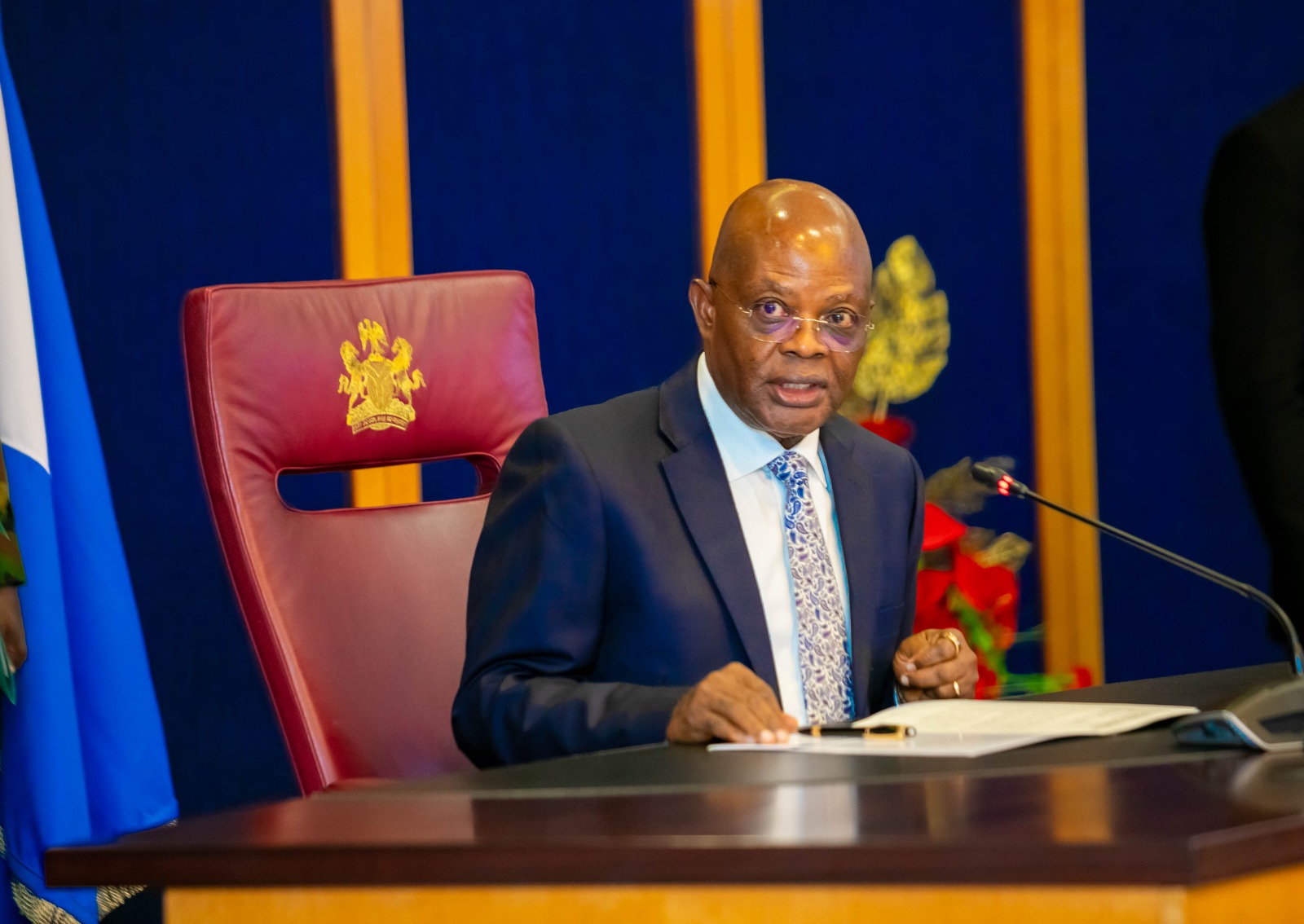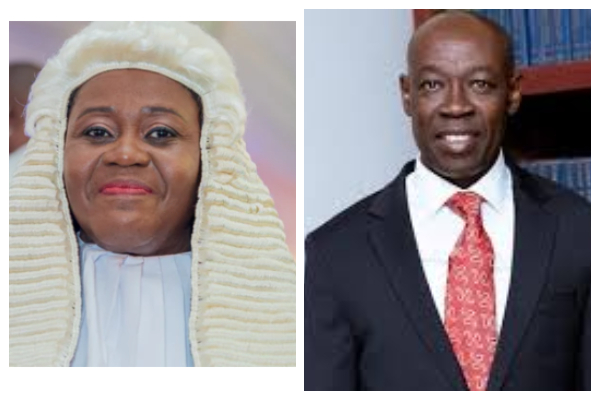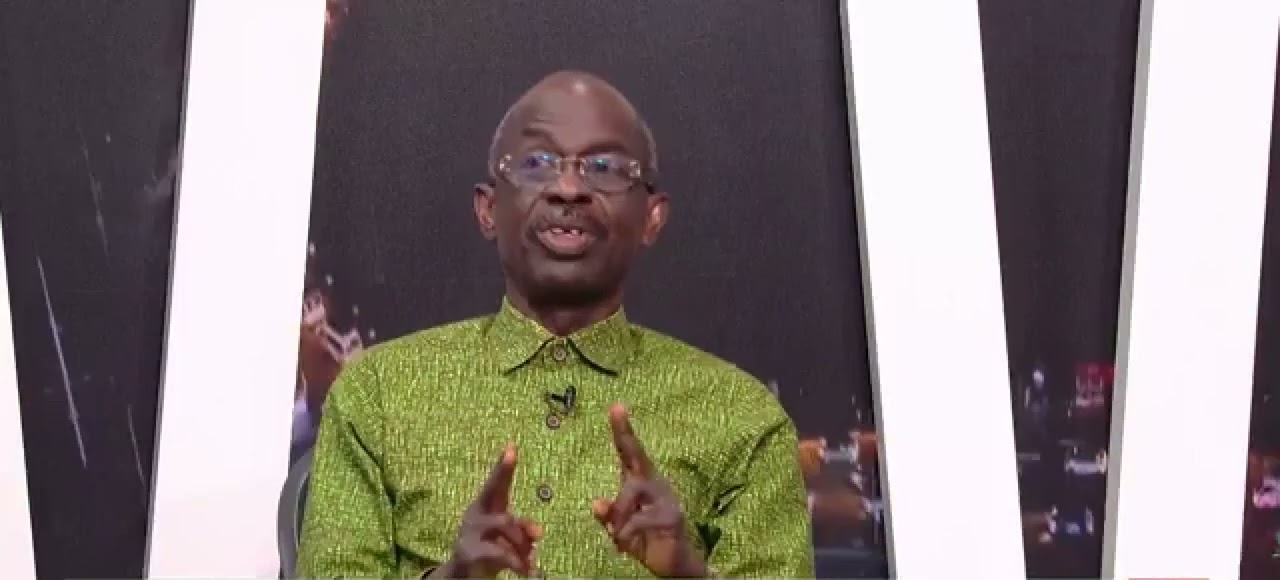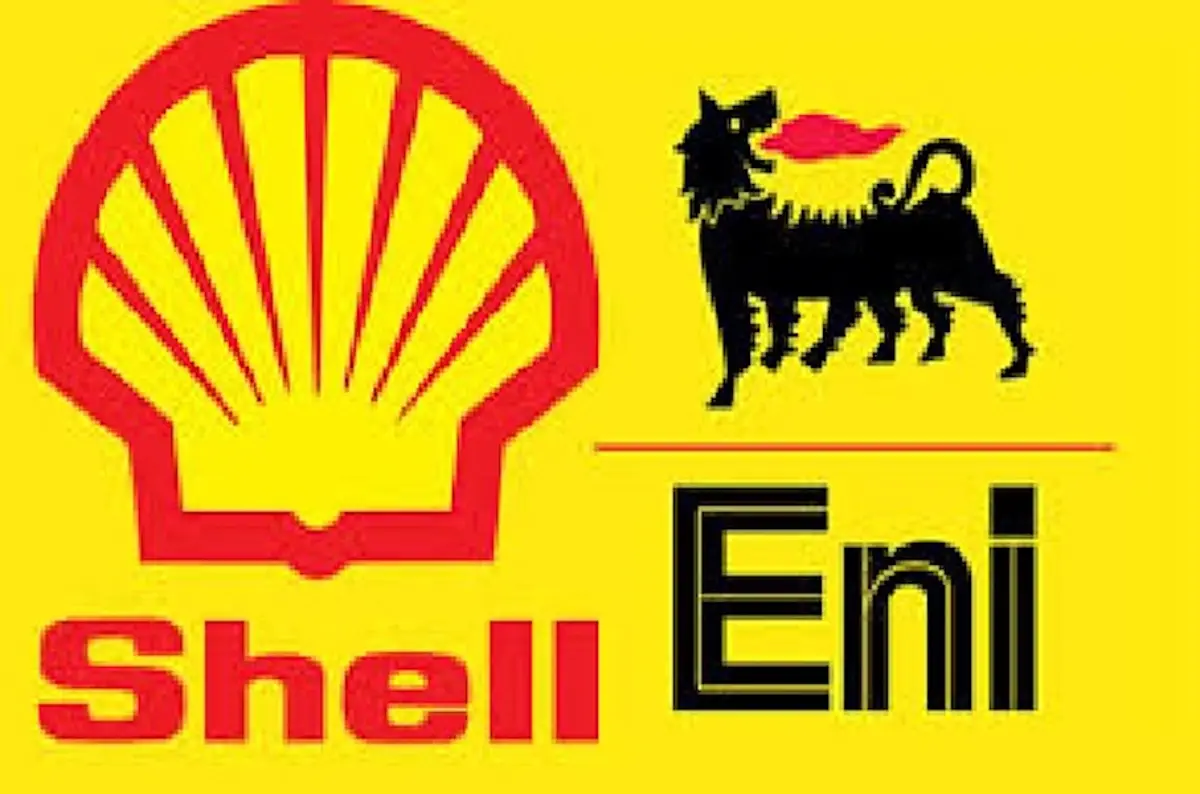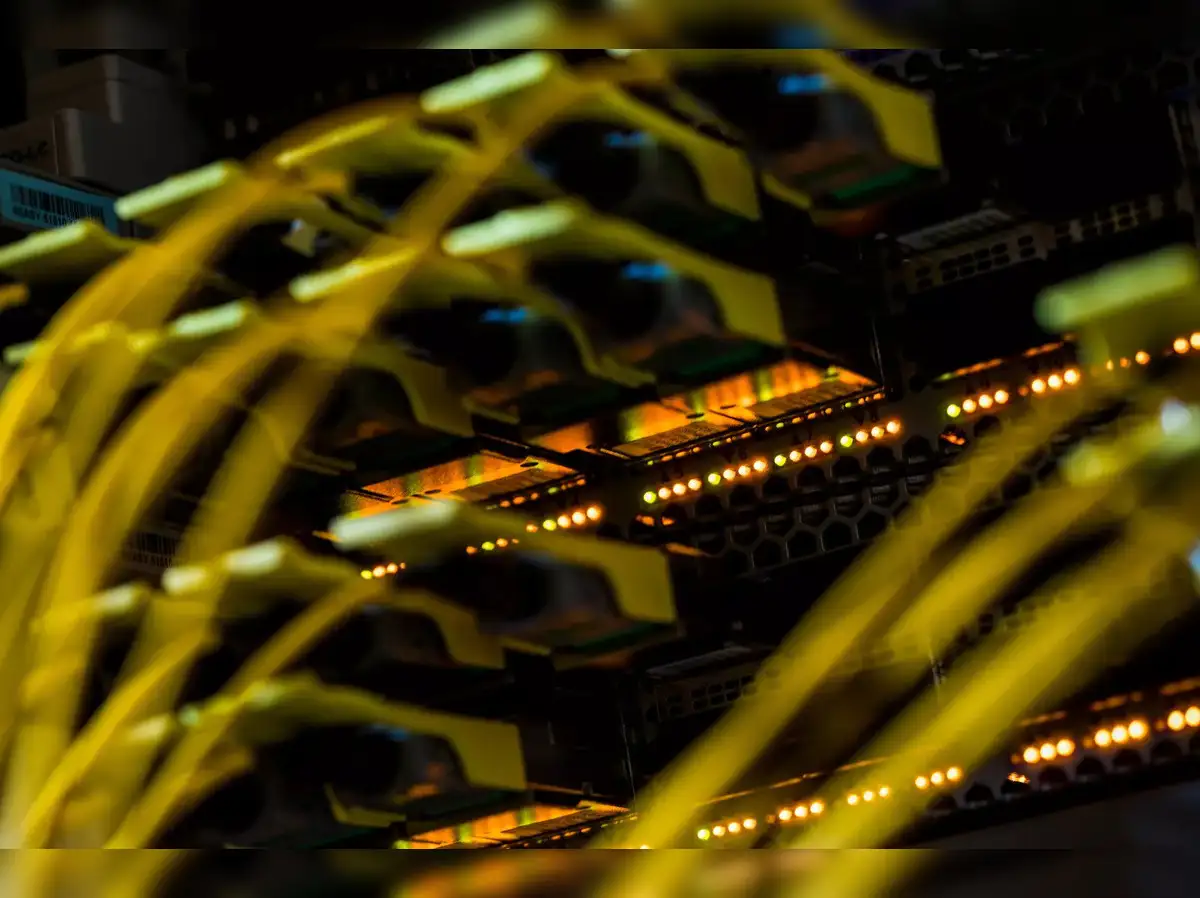N110bn Fraud Trial: Witnesses testify on houses Yahaya Bello allegedly bought with Kogi's funds
Two prosecution witnesses appeared on Wednesday before the Federal Capital Territory (FCT) High Court, Maitama, Abuja, testifying on transactions regarding two Abuja houses former Kogi State Governor Yahaya Bello allegedly bought with funds diverted from the state’s coffers.
The third prosecution witness, an official of the United Bank of Africa (UBA), presented documents on the account of Kogi State Government House.
Mr Bello, who served as the governor of the North-central state for two terms, spanning eight years – from January 2016 to January 2024 – is facing trial before the court on 16 counts of diverting more than N110 billion entrusted in his care as the governor.
The Economic and Financial Crimes Commission (EFCC) charged Mr Bello alongside two co-defendants – Umar Shuaibu Oricha and Abdulsalami Hudu –– accusing them of diverting the funds from the state’s treasury in 2016.
It alleged in various counts that Mr Bello dishonestly acquired for himself properties located in choice areas of Abuja and one in Dubai, the United Arab Emirates (UAE), with the allegedly stolen funds.
Wednesday’s proceedings started with Mr Bello’s lead counsel, Joseph Daudu, a Senior Advocate of Nigeria (SAN), concluding the cross-examination of the first prosecution witness, Fabian Nworah, who is the chairperson of EFAB Properties Limited (EPL). Two other prosecution witnesses – an EFAB employee and a bank official – subsequently took turns testifying in the witness box.
Two properties in Gwarimpa and Maitama, both in Abuja, linked to Mr Bello, featured in Wednesday’s proceedings before trial judge Maryanne Anenih.
The cross-examination of Mr Nworah, which continued from previous proceedings, touched on the property at No. 1 Ikogosi Street, Maitama, Abuja.
Fielding questions from Mr Daudu, Mr Nworah informed the court that he was unaware of some aspects of EFAB’s dealings regarding the property which took place when he was outside the country. But he said the referenced transaction was concluded by Segun Adeleke.
The defence counsel confronted the witness with an inconsistency between the price recorded in a document (N570 million) and the price the witness mentioned (N500 million) in his oral testimony. The witness’ reply was that he had been out of the country when the transaction was finalised.
Thereafter, the third defendant’s lawyer, Z.E Abbas, asked the witness if he had ever met his client and if he could identify him as Shehu Bello. The witness replied in the negative.
Earlier in January, Mr Nworah testified about a deal involving an N550 million property at No. 1 Ikogosi Street, Maitama, Abuja. However, he did not mention former Governor Bello’s name.
Mr Nworah said the property was sold to Shehu Bello, but the name on the agreement was Bello Ohiani.
The witness also told the court that Shehu Bello returned to EFAB Properties, claiming that the EFCC was investigating the transaction and demanded a refund. The witness said Bello Shehu returned all documents related to the sale.
Mr Nworah said following an EFCC directive, the company refunded the N550 million in two instalments to a designated EFCC account.
The witness confirmed that none of the defendant’s names appeared on the evidence of the transaction/sales agreement tendered as exhibits and marked Exhibits A1 and A2.
Testifying as the second witness on Wednesday, Segun Adeleke, who is the General Manager of EFAB Properties Limited and Abimbola Williams, a compliance officer with United Bank of Africa (UBA), dwelt on payments for the Maitama, Abuja property and others, which the EFCC credited to Mr Bello.
None of the witnesses mentioned Mr Bello’s or the other defendants’ names in the dealings. However, other prosecution witnesses may have to testify for the full scope of the case against the defendants to be clear to observers.
Mr Adeleke, who was led in evidence by prosecution lawyer Kemi Pinheiro, a Senior Advocate of Nigeria (SAN), earlier testified for the EFCC in a sister case where Mr Bello is facing money laundering charges at the Federal High Court in Abuja.
In the Federal High Court case, the EFCC accused the former governor of diverting N80.2 billion belonging to Kogi State while he was in office. The prosecution alleged that Mr Bello paid advance school fees worth $720,000 for his children from the proceeds of the theft.
Similar to his account at the Federal High Court, Mr Adeleke testified that a property located on Ikogosi Street, Maitama, Abuja, was purchased by one Shehu Bello. Mr Adeleke’s testimony aligned with EFAB chairperson Nworah’s testimony that he was instructed to conclude the deal and hand over the property to the buyer.
He stated that the property was purchased for N550 million and Mr Shehu paid the sum equivalent in US dollars.
Mr Adeleke also confirmed that a property located at House 12, 59 Crescent, Fifth Avenue, Gwarimpa, Abuja, was purchased by one Nuhu Mohammed for N70 million.
The second prosecution witness explained that the payment was made via bank transfer in two tranches – N45 million and N25 million respectively.
Fielding questions under cross-examination from Mr Bello’s lawyer, Mr Daudu, the witness told the court that he “was convinced that the payments were made in two tranches” and that he could “present evidence” to back the claim.
Mr Adeleke also testified that Mr Shehu later returned, demanding a refund for the property, claiming it was under EFCC investigation. However, he said his company did not refund the money to Mr Shehu, following advice from the company’s secretary. He was silent on whether the money was rather paid to EFCC as Mr Nworah, the company’s chairman and first prosecution witness, stated in his testimony.
Mr Adeleke also told the court that his company issued relevant documents, including proof of payment and letters of allocation.
EFCC’s lawyer then sought to tender the official receipts issued for the purchase of the developers’ form, N70 million payment and the letter of allocation – for the property at Gwarinpa, Abuja.
Mr Abbas objected to the admissibility of the documents, arguing that as original documents, they could only be tendered by the person whose name was on the receipt. The third defendant’s lawyer also objected, adopting Mr Abbas’ submission.
But Mr Pinheiro countered the argument, contending that the objection was misconceived and that “no case law” was cited to back it. He stated that the tendering the document in the manner it was done is not legally prohibited.”
The judge overruled the objection. He admitted the documents and marked them as exhibits E1 and E2.
Under cross-examination, Mr Adeleke denied ever meeting Mr Bello and the two other defendants. But he admitted knowing the former governor from pictures he had seen in the media. He also confirmed that the defendants’ names did not appear on any records of his company.
He told the court that he was not present when his company’s secretary advised Mr Nworah against refunding the money to Mr Shehu.
The third prosecution witness, Abimbola Williams, who is a compliance officer at UBA, who appeared on subpoena, presented bank documents relating to the account of the Kogi State Government House covering relevant periods of Mr Bello’s time as governor.
Through the witness, the prosecution tendered the certificate of identification, the statement of account, and account opening documents for the Kogi State Government House. The documents were admitted by the judge and marked as Exhibits E1, E2 and E3.
Another statement of account, mandate form and certificate of identification covering January 2019 to 31 December 2020 were admitted and marked Exhibits F1, F2 and F3.
The court proceedings were then suspended for the day to allow time for the pages of the tendered evidence to be marked.
Mr Bello’s lawyer told the court of the former governor’s plan to apply for permission to travel abroad. The prosecution opposed the application, saying a similar application by the defendant is pending at the Federal High Court, Abuja.
Thereafter, the judge, Ms Anenih, adjourned the hearing of the application until 8 July and scheduled further proceedings for 8, 9 October, 12 and 13 November.
EFCC is prosecuting Mr Bello, and his co-defendants on 16 counts of fraud involving alleged diversion of N110 billion belonging to Kogi State.
The EFCC arraigned them on 27 November 2024, when the defendants all pleaded not guilty.
The charges include criminal breach of trust involving the alleged diversion of more than N110 billion entrusted in Mr Bello’s care as Kogi State governor.
The anti-graft agency said Mr Bello and his co-defendants diverted this fund in 2016, his first year in office.
It also alleged in various counts that Mr Bello dishonestly acquired for himself properties located in choice areas of Abuja and Dubai, the United Arab Emirates (UAE), with funds he allegedly diverted from the state government’s treasury.
For instance, the commission said the former Kogi State governor took N100 million from the government’s treasury to buy himself a property at 1160 Cadastral Zone C03, Gwarimpa II, Abuja, in 2021.
The charges further alleged he bought another property at 35, Danubi Street, Maitama, Abuja, for himself with N950 million belonging to the state in 2023.
He allegedly bought another one at 2, Justice Chukwudifu Oputa Street, Asokoro, Abuja, with N920 million belonging to the state in 2020.
The two co-defendants, Mr Oricha and Mr Hudu, were accused of conspiring with Mr Bello to perpetrate the alleged fraud.



